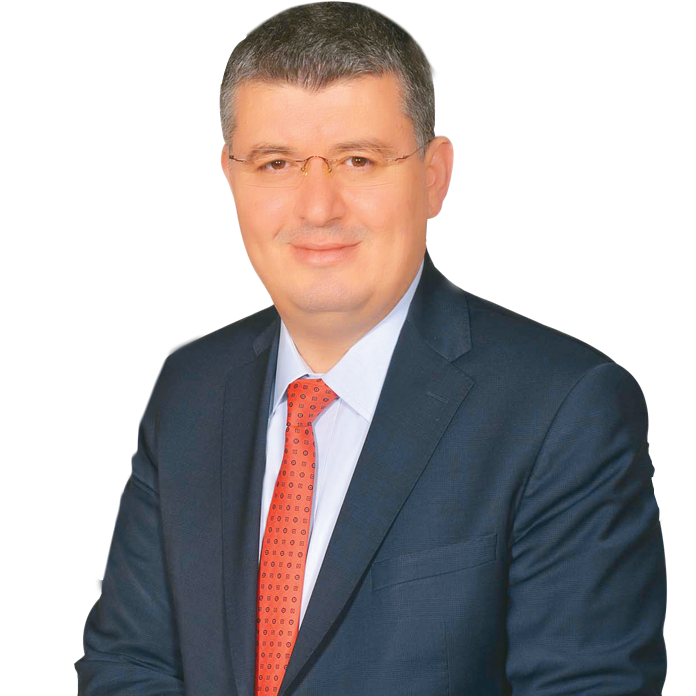Many years ago, as I was chatting to a Turkish diplomat, he constructed a metaphor to describe how difficult it was to do business with the Russians:
“First, they parcel out their own shares. Those are untouchable. They negotiate with the remaining share of the pie, and milk it for all they can.”
Turkey’s strongest leverage in its “strenuous relations” with Russia is, the fact that President Recep Tayyip Erdogan is a “tough negotiator” who knows how to use his bargaining chips.
On Thursday, Erdogan and his Russian counterpart Vladimir Putin came together in the Black sea resort town of Sochi once more for another critical meeting.
At the beginning of the talks, Putin made an opening statement:
“Our talks with Erdogan are not always unproblematic. However, our establishments and institutions manage to find a compromise.”
It was clear long before that one of the important topics of the agenda at the Sochi summit would be the Idlib crisis.
While Russian Defense Minister Sergey Lavrov was in New York for the UN meetings, he accused Turkey of not being able to differentiate between terrorists and innocents, adding that this would be further discussed in Sochi.
The truth of the matter is that the Russians see Idlib as “their share.”
For this reason, in their “final scenarios,” they envisage an Idlib where Turkey’s presence is non-existent, and their actions reflect this notion.
Turkey managing to maintain its presence there (and its insistence on retaining it) is only due to the fact that it has paid a heavy price, incurred losses in terms of its martyrs, and, when necessary, has been able to show it means business (For example, it inflicted great losses on regime elements in Feb. 2020 when it launched attacks with its armed combat drones).
Lavrov blames Turkey of not being able to tell apart the terrorists from one another, when this accusation is in fact nothing more than rhetoric.
As everyone is well aware, the Russians have targeted groups considered moderate opposition far more than recognized groups, known as "terrorists", since September 2015, when they officially entered the Syrian war.
To add insult to injury, it is no secret how Russian jets and regime elements mercilessly launched strikes on schools, hospitals and market places buzzing with civilians.
If we take the statements made at the beginning of Monday’s meeting as reference, it seems that Putin is not very keen on negotiating when it comes to Syria.
In his statements, Putin mentioned that with the launch of TurkStream, unlike the precarious period in the natural gas market in Europe, Turkey felt safe.
He touched upon the boost in bilateral trade volume. He spoke of the cooperation in Azerbaijan’s Karabakh, but he neglected to mention Syria.
We can talk of two possibilities when it comes to interpreting Putin’s intentions:
1. He could have done it because he really didn’t want Syria and Idlib to become the main topics of this meeting.
2. However, if results on other matters pan out in favor of his own country, he might be willing to negotiate, within certain margins, when it comes to the Idlib dossier.
If we once more consider statements made at the beginning of the talks, it seems that Syria is on the top of Erdogan’s agenda.
“I especially believe that there are great benefits in our sustaining Turkish-Russian relations, which are by getting stronger day by day. The steps we take together regarding Syria are of great importance. Peace there also depends on the relations between Turkey and Russia,” Erdogan said.
The media, television programs are all discussing how the Sochi summit will pan out in terms of Idlib.
However, it is highly probable that some unfulfilled Russian promises were brought up by Erdogan in this meeting.
We can discern this from the statements made to Bloomberg by a top-level Turkish official before the summit.
Let’s take a short trip down memory lane: In October 2019, Turkey, which liberated the region between Ras al-Ayn and Tal Abyad in the east of the Euphrates with an operation, first conducted negotiations and reached agreements with the U.S. and then with Russia.
According to those agreements reached with both Russia and the U.S., the YPG terror group would withdraw 30 km away from the Turkish border.
However, this did not transpire.
In other words, the Russians failed to keep their promise.
The Turkish official who spoke to Bloomberg stated that Erdogan would remind Putin of the YPG article in that agreement.
According to that agreement, with the withdrawal of the U.S., Russia became the guarantor of regions such as Manbij and Tal Rifat, from which the YPG would withdraw.
Well, did the PKK’s Syria branch, the YPG, withdraw from these regions?
No, it did not.




















